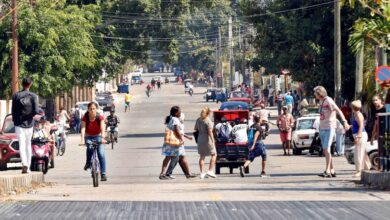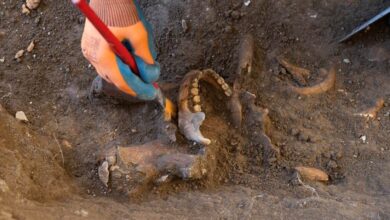Nicaragua: will it soon leave OAS?
Listen this article
Since last week, the OAS intends to make use of the Inter-American Democratic Charter. What is it and how can it harm Nicaragua?

Due to the continuous crisis that has been occurring since April 2018 in Nicaragua, the Organization of American States (OAS) began processing the Inter-American Democratic Charter in December last year. With this, the Central American country would be temporarily expelled from the organization.
Leer en español: Nicaragua: ¿pronta a salir de la OEA?
Since the protests, around 300 people have died and more than 1,000 have been injured. Nicaraguans protest the imposition of social reform. In the same way, they do not share that the current president Daniela Ortega, remains in power, through the candidacy of his wife for the next elections. To this is added the strong media repression that the country is suffering, because any local media that tries to inform the situation is closed or censored.
However, why is the use of this resource made? In what other countries was this mechanism used? In LatinAmerican Post we tell you more about it.
What is the OAS?
To understand the reasons for expulsion it is important to contextualize the situation. First, this organization is the oldest organization created to discuss conditions in the region (which includes all the Americas).
It was created in 1948 and according to Article 1 of the OAS Charter, "the Organization was founded with the aim of achieving in its Member States, an order of peace and justice, encourage their solidarity, strengthen their collaboration and defend their sovereignty, its territorial integrity, and its independence."
Therefore, within its functions is to solve the legal, political, and economic conflicts that occur within a country that is a member. That is why the organization puts the spoonful in the crisis that is lived in Nicaragua.
Maybe you are interested in reading: CICIG provokes a power struggle in Guatemala
What is the applied resource?
According to the Secretary General of the OAS, and in an extraordinary session, Luis Almagro affirmed that in the case of Nicaragua it is necessary to use the International Charter, which is a mechanism that is available when there is "alteration or rupture of the democratic and constitutional thread in one of its member states," as El Heraldo mentions.
Then, the use of this mechanism is invoked to improve the functioning of democracy. Consequently, Almagro said that "the crisis in Nicaragua fully justifies the invocation of Article 20 of the Inter-American Charter, is made with constructive criteria, seeking to reach agreements."
In turn, this article states that "in the event that in a Member State there is an alteration of the constitutional order that seriously affects its democratic order, any Member State or the Secretary General may request the immediate convocation of the Permanent Council to make an assessment of the situation and adopt the decisions it deems appropriate ".
To this is added that the OAS, and in accordance with Article 3, advocates the essential elements (representative democracy, respect for human rights and fundamental freedoms, access to power and its exercise subject to the state of right, the holding of periodic, free, and just elections based on universal suffrage, among others).
This resource is used for these reasons. In addition to not getting an early solution to the Nicaraguan crisis, the Organization could apply Article 21 of the Charter, which will expel the Member State "when diplomatic efforts have been unsuccessful." For this to happen, the decision must be put to the vote and for the country to be expelled, two-thirds of the General Assembly must approve it, as ABC newspaper recalls. Should this happen, Nicaragua would lose all rights as an active member of the organization.
The response of Nicaragua
It was announced that the Nicaraguan chancellor, Denis Moncada, asked the Organization not to apply this resource to the country. As El Espectador reports, the official affirmed that he requests "the support of his governments so that the requests of the OAS Secretary General, Luis Almagro, related to the application of Article 20 of the Inter-American Democratic Charter, will not be approved."
With this Moncada affirms that Almagro "is not empowered in the current circumstances." He added that the Charter must be applied when a coup d'état is presented, which has not happened in Nicaragua and that is why he advocates that Democracy in his country still exists. It also emphasizes that if the Organization takes that decision, "the OAS will be delegitimized."
In what other countries have you applied this resource?
The Inter-American Charter was approved in 2001 and the first time it was applied was in 2002 "during the momentary exit of the government of the then Venezuelan president, Hugo Chavez," according to the BBC. Thus, the organization called for the president's departure and demanded a democratic solution to the conflict.
One of the cases in which a country was expelled from the organization was in 2009. At that time it was resolved in that way, due to the coup d'état that separated Manuel Zelaya from power in Honduras.
Finally, in June 2016, the OAS (headed by Luis Almagro) applied the same article to Venezuela. At that time Almagro said that certain situations compromised Venezuelan democracy. According to the BBC, among them was "the humanitarian crisis generated by the shortage of food and medicines, the blockade of the powers of the State and the situation of human rights against political prisoners."
LatinAmerican Post | Laura Viviana Guevara Muñoz
Translated from "Nicaragua: ¿pronta a salir de la OEA?"





